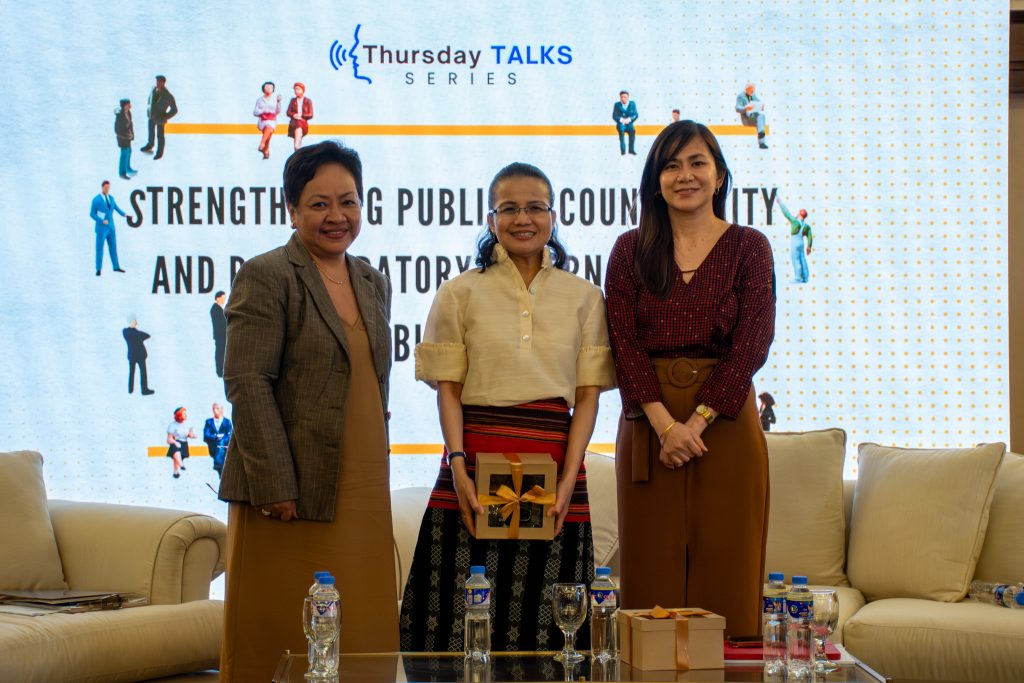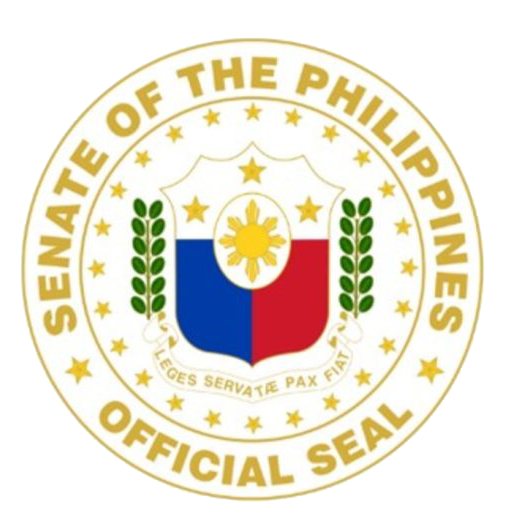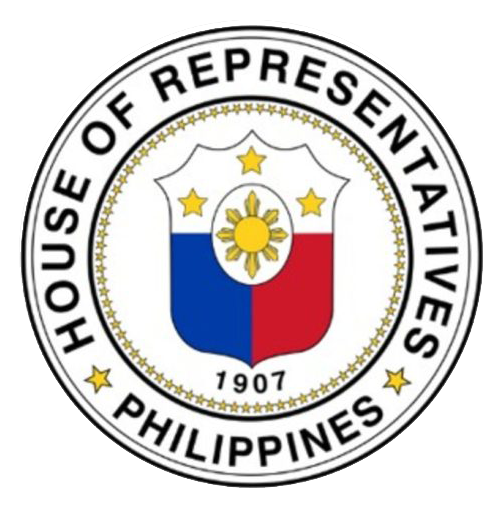DAP DISCUSSES PUBLIC ACCOUNTABILITY AND PARTICIPATORY GOVERNANCE IN CBILLS THURSDAY TALKS

(Left-Right) Resource Persons at the Thursday Talks Series Lecture 1: DAP-CFG Vice President Imelda C. Caluen (Moderator), Dr. Maria Ela L. Atienza, and Atty. Reverie Pure G. Sapaen
The Development Academy of the Philippines (DAP), through its Center for Governance – Policy Research Office, organized the first lecture of the Thursday Talks Series under the Capability Building on Innovative Leadership for Legislative Staff (CBILLS) program entitled, “Strengthening Public Accountability and Participatory Governance for Sustainable Development” last 04 April 2024 at the Romualdez Hall, House of Representatives, Quezon City.
Ms. Sheena Carmina Mateo, the Program Manager of CBILLS, discussed this year’s theme, “Anchoring Sustainable Philippine Development in the Pillars of Innovative and Participatory Governance,” which emphasizes the critical role of innovation in fortifying various aspects of good governance toward transformative policymaking to promote an inclusive, resilient, and sustainable future for Filipinos.
Atty. Reverie Pure Sapaen, Director IV of the National Economic and Development Authority (NEDA)-Governance Staff, opened the first session, discussing public accountability and participatory governance as provided for in the 1987 Philippine Constitution. She then connected these concepts to the Sustainable Development Goals and discussed the current situation, indicators, challenges, and strategies of the country to achieve these goals, especially in promoting peaceful and inclusive institutions. Atty. Sapaen concluded by presenting opportunities and best practices in place for strengthening public accountability and achieving SDGs in the country.
Afterward, Dr. Maria Ela Atienza, Professor from the UP Department of Political Science, provided a context of inclusive and human rights-based governance and democracy before localizing it to Philippine political institutions. She presented the global state of democracy vis-a-vis the Philippine situation, indicating a recent history of global democratic decline that is yet to manifest a turnaround. Dr. Atienza further interrogated the current state of and challenges faced by Philippine Democracy. She also presented their project—a partnership between International IDEA and the University of the Philippines—which provided local indicators for assessment, recommendations, and opportunities for strengthening the Philippine political system and institutions for development, saying “sustainable development cannot be achieved without genuine empowerment of people on the ground.“
Following both sessions, Ms. Caluen facilitated the open forum, where scholars from the Philippine Congress asked questions focusing on the indicators and obstacles in achieving SDG16, touching upon strategies for genuine participation, addressing issues of corruption, and how this plays into the current Philippine Development Plan. –Ziona Gilia Castro



